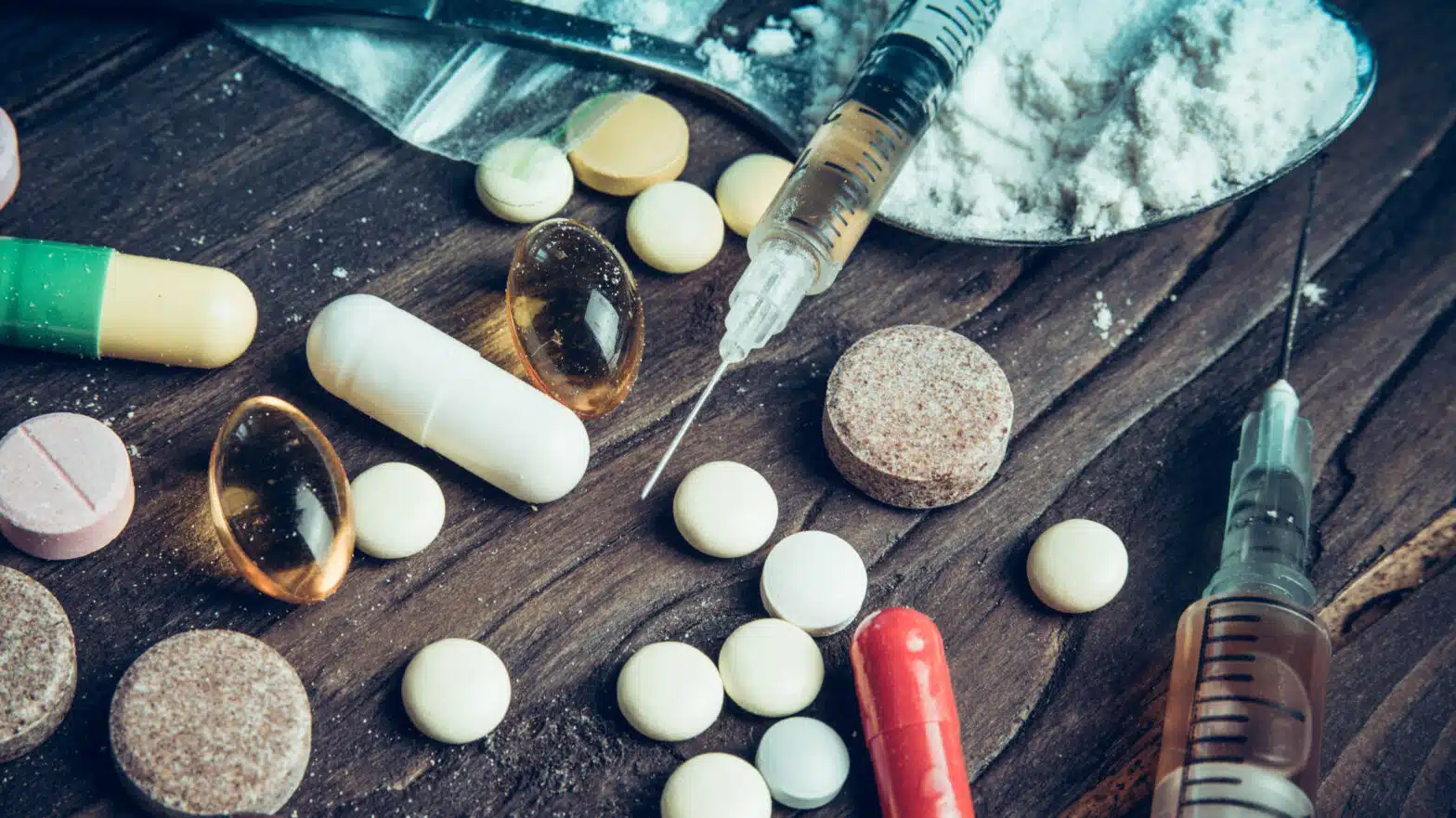Top 5 Most Addictive Substances In Massachusetts
The five most addictive substances in Massachusetts are alcohol, marijuana, cocaine, heroin, and other opiates. If you or a loved one is living with addiction involving one of these substances, Spring Hill Recovery Center can help you begin treatment.

Substance abuse is complex; anyone can be affected by it, and you can become addicted to any substance with addictive potential. However, some substances are considered to be more addictive than others.
To determine the most addictive drugs, researchers looked at factors such as potential harm, potential for physical and psychological dependence, and prevalence of drug use.
1. Alcohol
Alcohol is among the most commonly used addictive substances in Massachusetts. One out of every 12 adults in the United States is living with alcohol addiction.
Alcohol abuse is common because alcohol use is socially acceptable and because alcohol’s addictive potential is dually reinforcing.
Like more powerful depressants, alcohol activates the brain’s reward system by increasing dopamine levels while also reducing neural activity, which gives the impression of stress and pain relief.
Alcohol abuse can easily progress to an alcohol use disorder. If you are physically dependent, then alcohol withdrawal symptoms become a form of negative reinforcement, encouraging alcohol use just to make them stop.
2. Marijuana
The addictive potential of marijuana is low compared to many other drugs, but social acceptability is contributing to our knowledge of marijuana use disorders.
Data suggests that roughly 30% of people who use marijuana are dependent on the drug. In 2015, it was estimated that about four million people met the criteria for marijuana addiction.
Marijuana dependence is marked by reduced sensitivity to and production of endocannabinoid neurotransmitters within the central nervous system.
People who are dependent on marijuana often struggle to sleep and cope with negative emotions without the influence of marijuana.
3. Heroin
Heroin is a highly addictive drug. This illegal drug activates opioid receptors in the brain to increase relaxation and create a feeling of euphoria.
The American Society of Addiction Medicine (ASAM) states that a quarter of those who try heroin become addicted. In 2015, almost 13,000 deaths from overdose were related to heroin use.
The route of administration for heroin varies and may show the seriousness of the person’s heroin use. However, intravenous administration is the most common method of heroin use.
Frequent injections coupled with needle sharing increase the risk of contracting hepatitis B, C, HIV, and other infectious diseases.
Long-term heroin use has severe medical consequences, including bacterial infections of the blood vessels, liver and kidney disease, and lung issues.
4. Cocaine
Cocaine is a drug obtained from the cocoa plant in South America. This stimulant drug is illicitly manufactured in the form of white powder or rock form, known as crack cocaine.
Cocaine creates an intense high as it increases dopamine in the brain by acting on neurotransmitters.
Studies show around one million American adults were battling a cocaine use disorder in 2014.
In 2021, a study showed that among people aged 12 or older, 4.8 million people had used cocaine in the past year.
5. Other Opioids
There are a variety of other opioid drugs that cause addiction, including prescription opioids such as oxycodone, codeine, hydrocodone, and fentanyl.
Opioid prescription drugs are highly addictive and come with a high risk of overdose. Opioids have a variety of other adverse side effects, including nausea, constipation, and slowed breathing.
Long-term use of opioids can also cause psychosis, hallucinations, and sleep problems.
Get Help At Spring Hill Recovery Today
If you or a loved one are looking for an addiction treatment center in Massachusetts, we can help. Contact Spring Hill Recovery Center to learn more about our available treatment programs.
- American Society of Addiction Medicine (ASAM) https://www.asam.org/docs/default-source/advocacy/opioid-addiction-disease-facts-figures.pdf/
- Drug Enforcement Administration (DEA) https://www.dea.gov/factsheets/cocaine/
- National Council on Alcoholism and Drug Dependence (NCADD) https://ncadd.us/about-addiction/alcohol/facts-about-alcohol/
- National Institute on Alcohol Abuse and Alcoholism (NIAAA) https://www.niaaa.nih.gov/health-professionals-communities/core-resource-on-alcohol/neuroscience-brain-addiction-and-recovery/
- National Institute on Drug Abuse (NIDA) https://nida.nih.gov/publications/research-reports/marijuana/marijuana-addictive/
- National Institute on Drug Abuse (NIDA) https://nida.nih.gov/publications/research-reports/cocaine/what-scope-cocaine-use-in-united-states/
- National Institute on Drug Abuse (NIDA) https://nida.nih.gov/publications/drugfacts/prescription-opioids/
- National Library of Medicine: PubMed https://pubmed.ncbi.nlm.nih.gov/22329304/
- National Library of Medicine: PubMed https://www.ncbi.nlm.nih.gov/pmc/articles/PMC2851032/
- National Library of Medicine: PubMed https://www.ncbi.nlm.nih.gov/pmc/articles/PMC6482381/
- Substance Abuse and Mental Health Services Administration (SAMHSA) https://www.samhsa.gov/data/sites/default/files/NSDUH-DR-FRR3-2014/NSDUH-DR-FRR3-2014/NSDUH-DR-FRR3-2014.htm/

